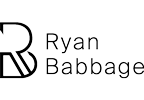As the world rotates through the turmoil of COVID-19, trust is inevitably in short supply and high demand. Supply chains have been fractured and, in some cases, totally eroded. Economic stability is shaky, and even the internal working mechanisms within governments lack confidence. The deterioration of trust has forced economies to look with greater determination to the technology sector for answers.
Decentralisation
Companies and people are tired of paying intermediaries for subpar services that deliver little to no value while taking a portion of the revenues that could be better used elsewhere. These very circumstances are why the concept of peer-to-peer transactions have been given wings to fly is because trust in the financial system has eroded considerably within the last two decades. The UAE government described blockchain as an experiment to redefine trust for the contemporary internet in the modern marketplace.
All political, legal and economic structures consist of contracts, transactions, laws and records that protect assets and define legal boundaries to protect organisations’ intellectual property rights and sovereign interests. Furthermore, the rapid digitisation of economies has exposed gaping holes in the outdated infrastructure created to manage and maintain old infrastructure. As new technologies are developed daily, hybrid patch-up work can only last so long. Significant infrastructure development has been financed to pave the way to a new era that has seen blockchain become a pivotal piece. A distributed approach to data management and transacting with transparency has allowed distributed databases that contain entire historical records to be viewed as trusted information portals without the need of an intermediary.
With no single point of fracture, distributed databases are proving to be the litmus test that fast track trust in a trust less society. Transparency removes ambiguity and visibility to all with access to the system, demonstrates that all interactions are irreversible and non-editable. Blockchains also require computational logic, which allows for programmable interactions to occur along chains. Users are able to program rules and set up algorithms that automatically trigger transactions like payments or insurance claims, for example, at determined intervals on a chain.
Trust is everything, just as the promissory note on reserve banknotes stand as legal tender throughout Australia and the world, that bearer of the note will be able to exchange goods or services to the note’s value. So too, will the integrity of blockchains be trusted and relied on to fact check every transaction? Prior and trailing records of all occurrences from the very first block of information on the chain till the last are proof of trust.



